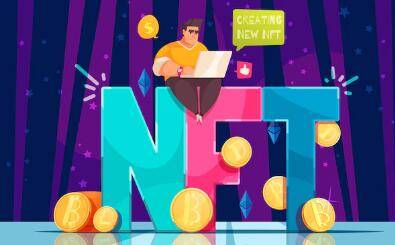The dispute over artists' participation in the royalties of creators of irreplaceable tokens (NFT). Web3 has considered and developed a tool to ensure that NFT artists can continue to earn income from their intellectual property.
Web3 has considered and developed a tool to ensure that NFT artists can continue to earn income from their intellectual property. By using smart contracts, artists can incorporate lifetime royalties into all irreplaceable token sales, which will automatically transfer a certain proportion of profits to their encrypted wallets permanently. NFT royalties based on smart contracts have been regarded by independent artists as urgently needed protection. Although the NFT royalty of smart contract automation is the perfect antidote to Web3 exploited by creators for many years, building the infrastructure to implement this vision poses additional challenges.
Limitations of smart contracts
The permanent creator royalty is great in theory, although there are some logical loopholes in the chain implementation. First of all, creator royalties are enforced by smart contracts. This is a blockchain-based code that executes instructions for predetermined protocols. In this way, smart contracts are not "smart" technically - the code is constructed as a set of if/then conditions executed according to specific inputs and triggers. Smart contracts are not a form of artificial intelligence (AI) because they do not produce any productive output; The ending can only be a predetermined option.
Smart contracts are not contracts in technology. The government has no obligation to recognize them as legally binding documents, and the contracts between individuals or companies signed by both parties in the presence of lawyers are always valid in the eyes of the judge. Vitalik Buterin, the co-founder of Ethereum, even said that he regretted giving such a powerful (possibly misleading) title to smart contracts. He once said that the more accurate description is "persistent script"
Creator royalty dispute
In addition to the practical issues of smart contracts and creator royalties, more economy-driven issues have emerged in recent months. The NFT market made headlines in the last quarter of 2022, because it proposed to select creator royalties on its platform to attract more buyers. At the same time, OpenSea doubled its commitment to royalty payment by preventing the resale of NFT cast on OpenSea in the secondary market where royalty is prohibited.

Skeptics believe that OpenSea's tool is actually a secret attempt to keep all sales on its own platform, but Devin Finzer, co-founder and CEO of OpenSea, responded that this is to let artists more control where their art is sold.
In order to bypass these markets, OpenSea has launched a new set of smart contracts with advanced programmability. At the same time, artists began to speak on social media and rallied for the right of creators to control their own royalty structure.
Community response
Many people attribute the trend of no royalty or optional royalty to the low trading volume of NFT during the bear market, which indicates an exploitative zero-sum mentality, which gives priority to the profits of NFT concentrated market and speculative investors.
There seems to be an expectation that artists (and loyal collectors) will simply migrate to a more creator-centered platform. Compared with the founder of PFP community such as Betty, one-to-one artists may feel that their interests are less, because their art tends to circulate less in the secondary market, so it is not expected to generate considerable income through royalties.
Ren.
last
After being boycotted by artists, several NFT markets changed their royalty options. However, artists still have their own views on royalties and still focus on endorsing creators. The artist's favorite tool is Manifold, which is a creator's studio that provides the ability of codeless creation and customizable smart contract generation to protect royalties.
















 Tue, 18 Apr 2023
Tue, 18 Apr 2023
